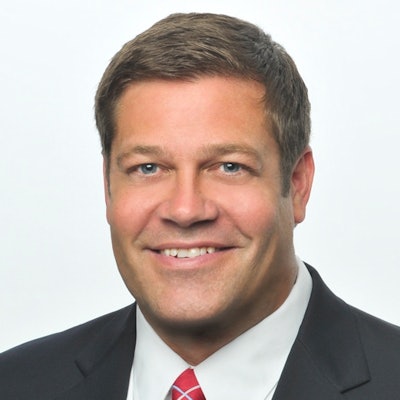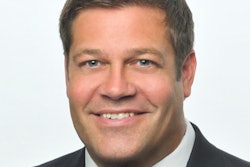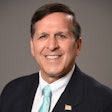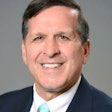
The past year has been a whirlwind for many businesses, including dental practices that were mandated to close due to pandemic restrictions and then slowly reopened based on their local and state government guidance. Now, however, there is light on the horizon with COVID-19 vaccination distribution ramping up.
 Dan Croft.
Dan Croft.In fact, according to NPR, as of late March, more than 128 million doses have been administered, fully vaccinating 13.7% of the total U.S. population. Additionally, President Joseph Biden's administration recently announced that every adult in the U.S. will be eligible for vaccination no later than May 1.
With this in mind, it appears that within the next several months, dental practices will be able to fully resume normal operations. In fact, according to Delta Dental's March survey, 93% of Americans plan to visit the dentist in 2021.
This should lead to an influx of funds for those that have been struggling with cash flow due to patients' fear of coming in for routine care and the need for longer, more spaced-out appointments to allow for proper health and safety protocols. The latter has caused many practices to implement longer hours and pay staff overtime to see the same patient load as pre-COVID-19.
With such good news on the horizon, there are a few considerations dental practices should keep in mind to remain profitable until they are able to fully recover to pre-COVID-19 revenue and staffing levels.
1. Review your active patient list and reschedule lapsed hygiene appointments for the spring and summer months
Many patients have not visited the dentist in the past year due to fear of contracting COVID-19 but have indicated an interest in doing so once they are fully vaccinated. As the economy bounces back and people regain employment and receive the COVID-19 vaccine, they will return to their dental office because they will no longer have the same health concerns and will have dental insurance and disposable income to use.
Additionally, during the pandemic, stress-related dental issues like teeth grinding, cracked teeth, and jaw pain have been exacerbated. Practices can expect to schedule more procedures for patients who return to the practice for a cleaning and need additional dental work due to stress-related conditions.
Due to this expected surge in dental visits, practices should consider booking out appointments. This is especially important for patient recalls since these regular checkups will allow dentists to identify other oral concerns that have gone untreated during the pandemic. Recall appointments could lead to a need for additional procedures in the summer and fall, resulting in more typical -- or higher -- prepandemic revenue levels.
Dentists should review their active patient lists to identify patients who have not scheduled appointments or who have scheduled and canceled a hygiene appointment in the past year and reach out to determine patients' availability for future appointments. During these conversations, the staff should reinforce the practice's COVID-19 safety protocol and assure patients that these standards will remain in place even once the population is widely vaccinated.
2. Continue to cross-train staff
Many practices lost staff members due to their fear of being in the office during COVID-19 or due to competing child or eldercare responsibilities. Specifically, many practices have fewer hygienists, who typically produce more than 20% of the business's revenue, creating a large gap in production. Fortunately, many practices have been able to cross-train staff and extend working hours to compensate for these workforce shortages. However, this also has led to the need to pay employees overtime to treat the same patient load.
Practices should continue to cross-train employees who can work longer hours in the short term. Once more patients have COVID-19 immunity, practices can return to normal operations and potentially decrease hours and hourly overtime payroll costs, while expanding the dental team as needed, especially with many hygienists returning to work to meet the expected summer and fall surge of returning patients.
3. Leverage financial relief programs
Programs like the U.S. Small Business Administration's Paycheck Protection Program (PPP) have helped many businesses nationwide, including dental practices, cover important expenses like payroll and rent or mortgage interest. A number of dental practices have applied for a second PPP loan during the newest round of lending.
While dentists can soon look forward to a full appointment schedule, they can still consider leveraging this funding or additional funding sources like traditional loans and lines of credit to secure financial relief until they are able to do so. Practices should document their use of PPP funds to track if they qualify for full forgiveness, essentially turning the loan into a grant. PPP loans may qualify for full forgiveness if during the eight- to 24-week covered period following loan disbursement, employee and compensation levels are maintained, and loan proceeds are spent on eligible expenses, including at least 60% of loan proceeds on payroll and related costs and taxes.
With vaccination efforts leading to a broad reopening of the economy, dentists can expect to see an influx of patients, especially since many will have dental needs that went unaddressed during the pandemic. However, widespread vaccination efforts may still be several months away, so while there is hope on the horizon, dental practices should take strategic steps to ensure they are able to remain profitable over the next several months and plan ahead for the expected surge of patients returning to their practice.
Dan Croft has been the head of TD Bank's Healthcare Practice Solutions Group since 2014. In this role, he is responsible for overseeing and growing TD Bank's healthcare practice finance business, which assists dentists, veterinarians, optometrists, physicians, and podiatrists in choosing sound financial solutions for their practices. Croft has more than 20 years of experience.
The comments and observations expressed herein do not necessarily reflect the opinions of DrBicuspid.com, nor should they be construed as an endorsement or admonishment of any particular idea, vendor, or organization.



















